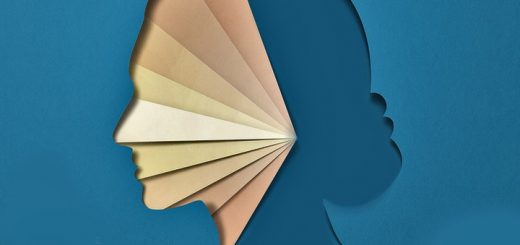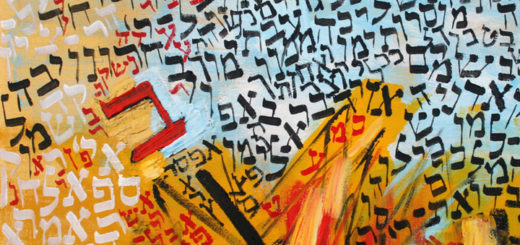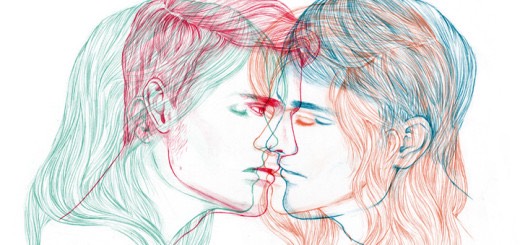La vita di Nicole, una donna transgender nella solitudine del Sud degli Stati Uniti
Intervista di Kate Sutton a Nicole Modjeski pubblicata sul sito di GLAAD* (Stati Uniti) il 15 settembre 2015, liberamente tradotta da Giacomo Tessaro
GLAAD ha incontrato Nicole Modjeski a Jackson, nel Mississippi, durante il suo tour nel Sud degli Stati Uniti. Nicole, una donna trans che vive nello Stato della Magnolia, ha partecipato agli incontri preparatori organizzati da GLAAD per il documentario L Word Mississippi: Hate the Sin.
Nicole ci racconta una storia molto forte sulla sua transizione, sul suo coming out in famiglia nel Mississippi e dell’impatto che ha avuto Caitlyn Jenner sulla sua famiglia. Le persone transgender devono affrontare un forte disagio da parte del resto della popolazione americana: il 59% delle persone non LGBT si sentirebbe a disagio se suo figlio o sua figlia frequentasse una persona transgender, secondo un sondaggio commissionato da GLAAD. Questa percentuale è ancora più alta nel Sud: 61%. Abbiamo proposto a Nicole un’ulteriore intervista scritta per parlare del suo viaggio verso la vita che ama. Ecco la sua storia.
Com’è stato uscire allo scoperto come transgender e il periodo della transizione in Mississippi?
A essere sinceri, è stato terribile. Ho dovuto nascondere chi ero veramente per molti anni. Già da piccola sapevo di essere diversa. Sono nata prematura e per questo sono ipovedente. Ho frequentato la scuola statale per i ciechi: ero parzialmente cieca e lì potevo trovare qualcuno che si occupasse delle mie esigenze. A scuola i maschi e le femmine avevano dormitori separati. Ricordo che volevo stare con le bambine. Volevo giocare con i giocattoli con cui giocavano le bambine, preferivo gli animali di peluche e l’ora del tè ai tipici giochi maschili. Più tardi, mi sono travestita in privato. Mi piaceva vestirmi come la donna che ero, ma ero terrorizzata perché la mia famiglia poteva scoprirmi.
Quando io e il mio fratello gemello ci diplomammo smisi di travestirmi: avevo paura che potesse scoprirmi e dirlo a nostra mamma: sapevo che non approvava “lo stile di vita dei gay e delle lesbiche” e che non avrebbe capito i miei sentimenti. Avevo paura di essere cacciata via, rifiutata. La mia disabilità non faceva che rinfocolare la paura, così cercavo di vivere da maschio normale.
Da adolescente avevo visto una donna transgender rifiutata dalla chiesa frequentata da mia mamma. Volevo sapere come avesse fatto, da uomo, a diventare donna. Ero affascinata: seppi allora che, da qualche parte dentro di me, ero una donna. Volevo essere come lei ma, ancora una volta, la paura tenne a bada i miei sentimenti. Mi vergognavo perché sentivo che Dio non poteva amarmi. Mi era stato insegnato che non essere un maschio etero era male, così nascosi i miei sentimenti e non ne parlai con nessuno.
Ho avuto pochissime opportunità di incontrare persone LGBT prima di andare all’università: lì incontrai una lesbica afroamericana di nome Kim, che assieme alla sua amica Mieko divenne la mia migliore amica. Vedevo la sua famiglia e le famiglie di altri studenti omosessuali rifiutare i loro figli e alla paura si aggiunse la paura. Tornai a casa e incontrai una persona meravigliosa e la sua amica, che era lesbica: lei la accettava senza problemi, quindi capii che c’erano delle persone nel Sud che accettavano gli altri. Ma di nuovo tenni a bada i miei sentimenti perché stavo ancora in famiglia e avevo indossato la maschera per molto tempo.
Quando ho fatto coming out sono stata rifiutata da alcune persone che chiamavo amici: altri cercarono di usarmi o manipolarmi per farmi cambiare idea. Avevo a disposizione pochissime risorse, pochi gruppi o transgender che potessero aiutarmi. Ero sola e isolata. Dovetti unirmi a un gruppo transgender di un altro Stato per trovare sostegno. Nel 2013 ho partecipato al Pride del Mississippi. Avevo incontrato su Internet una drag queen di nome Mackenzie, che mi aiutò a partecipare all’evento. Lì incontrai gente simpatica ma quasi nessuna donna o uomo transgender, solamente una o due.
Cercavo ancora altre persone transgender vicino a casa mia e qualcuno del gruppo mi fece conoscere un articolo sul documentario L word. Ecco così che lessi del Dandelion Project (Progetto Dente di leone) di Brandiilyne Dear, che contattati poco dopo. Nel 2014 trovai una chiesa aperta a tutti chiamata Safe Harbor (Porto sicuro). Le persone della comunità mi accettarono e trovai anche alcune transgender. Per la prima volta sentivo di poter adorare Dio ed essere me stessa, l’autentica me stessa. La pastora Amber Kirkendoll organizzò perfino dei passaggi in macchina in modo che potessi assistere al culto domenicale.
In Mississippi the resources are very limited, therefore most transgender people cannot afford the therapies or hormones. I was lucky because the depression, common to many transgender people, helped me. The friends, whom I had known for a long time, had rejected me and found a clinic that could help me cure depression. There I started talking about my feelings as a woman and presented me a fantastic psychologist named Angela Esary. For the first time I had found someone who could help me start the trip. Being disabled, I have government insurance, so Angela was able to treat my depression and recommend me for hormonal therapy. I found a doctor who prescribed my hormones and began the journey to the authentic myself.
I'm not done yet and I don't know where I will take all the money necessary for my medical transition, which others like Caitlyn Jenner have had. In Mississippi the resources and health for trans people are lacking and I can only have faith that I will make it. People in Mississippi judges what they can't understand. It was not easy. My family said he wouldn't accept me and after two years they are making a reason for it. It is a blessing to have found the Safe Harbor Church and the Dandelion Project.
What did you do after our tour in the South? How did things go?
I continued my transition and my daily life. I am looking for a place to live, where I and my precious micina can be full -time, a little price. I am disabled and visually impaired. I met a fantastic Pro-LgBT church-family called Safe Harbor and I attended the Brandiilyne Dear group, the Dandelion Project. And then shopping. I don't forget to shop. Life is not easy in Mississippi. Transgender life can be tough if you don't have the right people around. Fortunately, my mother tries to support me when she can. Fortunately there is a wonderful church that supports me. I tried to find other trans people here in the area but most live in other areas, like the coast.
Do you frequent any LGBT organization here in Mississippi?
I am part of the Dandelion Project and the Gulf Coast Transgender Alliance (Transgender alliance of the Gulf Coast) lined by Molly Kester, which is also a blanket of the Mississippi Gulf Coast Rainbow Center (rainbow center of the Costa del Golfo del Mississippi), but they are too far away for me to be able to meet them every day. I would like to be more active and commit myself with a greater number of local groups. There is a need for many groups and organizations in the South and Mississippi and I would love to be part of it.
When we met, you told us a very intense story about your family and Caitlyn Jenner. How did your coming out do you well?
Yes, when in 2012 I got out with my mom and brother, they weren't happy. They said they would never accept me as a woman, that it was a shame to be transgender. I quarreled for a long time with my brother. I don't want to go into details, but it wasn't a happy time: I also thought about suicide. Fortunately, a person known online, Vickie Turner, was present to console me and to stay on the phone all night with me. He reassured me and then my cat, Chloe, came to me and I was calm. They saved my life.
Before Caitlyn Jenner I had my family against. One evening my mom and brother saw her on TV. It was as if a light bulb had turned on in their head. My brother came to me and said he would accept me. He understood that being transgender is something that does not change and is not a shame. He thought it was a kind of illness, but we are simply made like this. Shortly after my mom began to support me by making small things like taking me shopping and buying the tricks together. Caitlyn Jenner did us good, he showed them that they are not the only transgender. Caitlyn Jenner allowed my family to love me.
What do you see in the future of Mississippi?
Honestly, it is difficult to say. Mississippi loves to resist change. I think if other facts such as the sentence of the Supreme Court on homosexual marriage will happen, Mississippi will be forced to change. Any new law that protects us or make us easier the transition must be done at the federal level. I believe that when something becomes common, then Mississippi accepts it.
.
* Glaad (Gay & Lesbian Alliance Against Defamation, gay and lesbian alliance against defamation) It is a non-profit organization of LGBT activism, aimed at promoting and guaranteeing an accurate representation of LGBT people, in order to eliminate homophobia and discrimination based on gender identity and sexual orientation.
Original text: #Southernstorias: Nicole Modjeski Talks Transition, Mental Health, and Life in Mississippi






